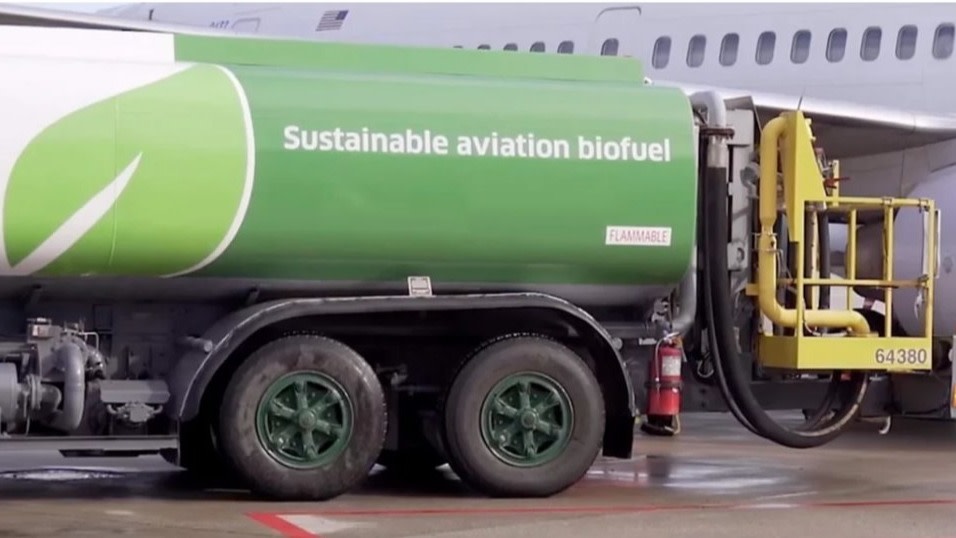Honeywell's Ethanol-To-Jet Fuel Technology Surges Sustainable Fuel
Honeywell International Inc.

Honeywell announced a new, innovative ethanol-to-jet fuel (ETJ) processing technology that allows producers to turn corn-based, cellulosic, or sugar-based ethanol into sustainable aviation fuel (SAF).
Honeywell's ethanol-to-jet-fuel process can reduce greenhouse gas (GHG) emissions by up to 80% on a total lifecycle basis compared to petroleum-based jet fuel, depending on the type of ethanol feedstock used.
The aviation industry is constrained by the restricted availability of traditional SAF feedstocks, such as vegetable oils, animal fats, and waste oils. Ethanol is a readily available and economically effective feedstock for producers. Ready Now technology from Honeywell uses high-performance catalysts and heat management capabilities to enhance production efficiency, resulting in a cost-effective aviation fuel with a lower carbon intensity.
The U.S. Department of Energy's (DOE) Argonne National Laboratory concluded in a 2021 life-cycle analysis that the conversion of ethanol to jet fuel, when combined with other technologies such as carbon capture and sequestration (CCUS) and smart farming practises, can result in negative GHG emissions compared to petroleum-based jet fuel.
Barry Glickman, vice president and general manager, Honeywell Sustainable Technology Solutions, said:
"Honeywell pioneered SAF production with its Ecofining™ technology, and our new ethanol-to-jet fuel process builds on that original innovation to support the global aviation sector's efforts to reduce GHG emissions and meet SAF production targets with an abundant feedstock like ethanol. Honeywell's ethanol-to-jet process, when used as a standalone or when coupled with Honeywell carbon capture technology, is ready now to provide a pathway to lower carbon-intensity SAF."
Using Honeywell's technology, SAF plants can be modularised off-site, resulting in lower installed costs and faster, less labour-intensive installation than on-site construction. Using Honeywell's ETJ technology and an integrated, modular construction approach, companies can create new SAF capacity more than a year faster than with conventional construction approaches.
Honeywell's ETJ design is purpose-built to facilitate the conversion of present or idle facilities into SAF production plants, thus maximising the utilisation of existing locations for SAF production to meet rising market demand.
Source: Honeywell






